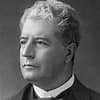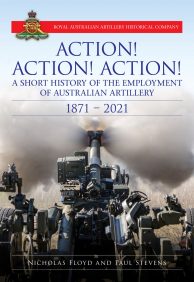
From the Army to the DVA
After 30 years in the Army, many of those final years working in organising ceremonial events, Paul Richardson CSC OAM found that moving to DVA’s Commemorative Events Team was a natural fit.
He made the move six years ago, having risen to the rank of Warrant Officer Class One by age 35 and then being appointed as a Regimental Sergeant Major, including several deployments to East Timor and Afghanistan. His career was progressing and Paul hoped to be Regimental Sergeant Major of the Army one day. However, he decided to put his family first.
‘One of the jobs that led me to DVA was while I was the Warrant Officer – Ceremonial of the Australian Defence Force (ADF),’ Paul says. ‘That was during the Centenary of Anzac period, so I was lucky enough to be the ADF’s representative working with DVA directly, enabling me to represent the Army in uniform in Gallipoli, France and the United Kingdom.
‘I really enjoyed the work because I saw what it provided the veteran and their family.’
Paul joined the Army straight out of school, aged 17. When he went to the recruiting office he intended to join the Navy because he came from a small fishing village in East Gippsland called Lakes Entrance and loved boats. But at the last minute, he changed his mind.
‘I’m not sure why,’ he laughs. ‘It was a spur of the moment thing. Perhaps it was because all my family had been in the Army during the First and Second World Wars, or for National Service, but no one had stayed for a career.
‘I had a fantastic, rewarding career. I only left because I had young children and wanted them to be schooled in one place and to also grow a close network of friends. My partner still serves in the Army, so by me leaving the Army, it also helped her career to flourish, given mine was the priority for some time.’
Paul has just been formally appointed as Director of Commemorative Events. (Read the related article.) He identifies two highlights since he joined DVA. One was the recent National Commemorative Service marking the 50th anniversary of the end of Australia’s involvement in the Vietnam War. The other was supporting Second World War veteran commemorative missions to the UK and France for the 70th anniversaries of the Normandy landings and Victory in Europe Day.
‘I have always considered these veterans to be our national treasures,’ Paul says. ‘To see the look on their faces when they received their Legion of Honour medals, or marched down the streets of London and were received by the now King on Horse Guards Parade was priceless.
‘To have a brief audience with the late Queen was also a very special occasion for me.’
Even though he was doing similar work, Paul found the transition from the Army to civilian life challenging.
Image: Paul Richardson instructing as a Regimental Sergeant Major in Afghanistan. 
‘Being a Regimental Sergeant Major, I was kind of at the top of the tree for a soldier,’ he says. ‘The role of the Regimental Sergeant Major is also quite unique, the pace stick sometimes says it all. I came into the Australian Public Service (APS) at a slightly different level. Also the APS has a very different style, a different approach and mentality which it takes a while to get used to. The military is very mission focused.
‘So much like my Army career, I continue to learn and be led by others. I do though every now and then, behave a little like a Regimental Sergeant Major, when required.
‘Above all, I miss the camaraderie. I still do today. I also miss the group physical training. It’s hard when you transition to make yourself do that. Keeping physically fit and then doing it in large and small teams is so good for your mental health – it’s a routine, it’s competitive, and you feel so good after it. I did love giving the young ones a run for their money when the opportunity was presented. I always prided myself in whatever unit I served, to be up the front of the pack, regardless of my age.
‘But one thing I don’t miss is the ironing,’ he laughs.
Paul stayed in the Army Reserves until earlier this year, mentoring senior non-commissioned officers and warrant officers at the Australian Defence Force Academy.
He says being busy helped him with the transition process. He joined the department at the tail end of its Centenary of Anzac program and was heavily involved in organising events marking the Battle of Polygon Wood in Belgium, the Battle of Beersheba in Israel, the Battle of Hamel in France, Anzac Day in France and finally Remembrance Day in France.
Paul said he would highly recommend the APS as a place to work for people transitioning from the ADF due to its similarities and the contribution you can continue to make serving the public.
‘I honestly think that many ADF members should seriously consider a second career in the APS whether they are planning to transition either early or later in life. It has some similarities that would assist some who do struggle with transition. I am happy to admit it’s not easy after so many years of military service. My only piece of advice is that you can’t do it alone. Look at being coached or mentored. Reach out to other veterans that have done what you are about to do.’




